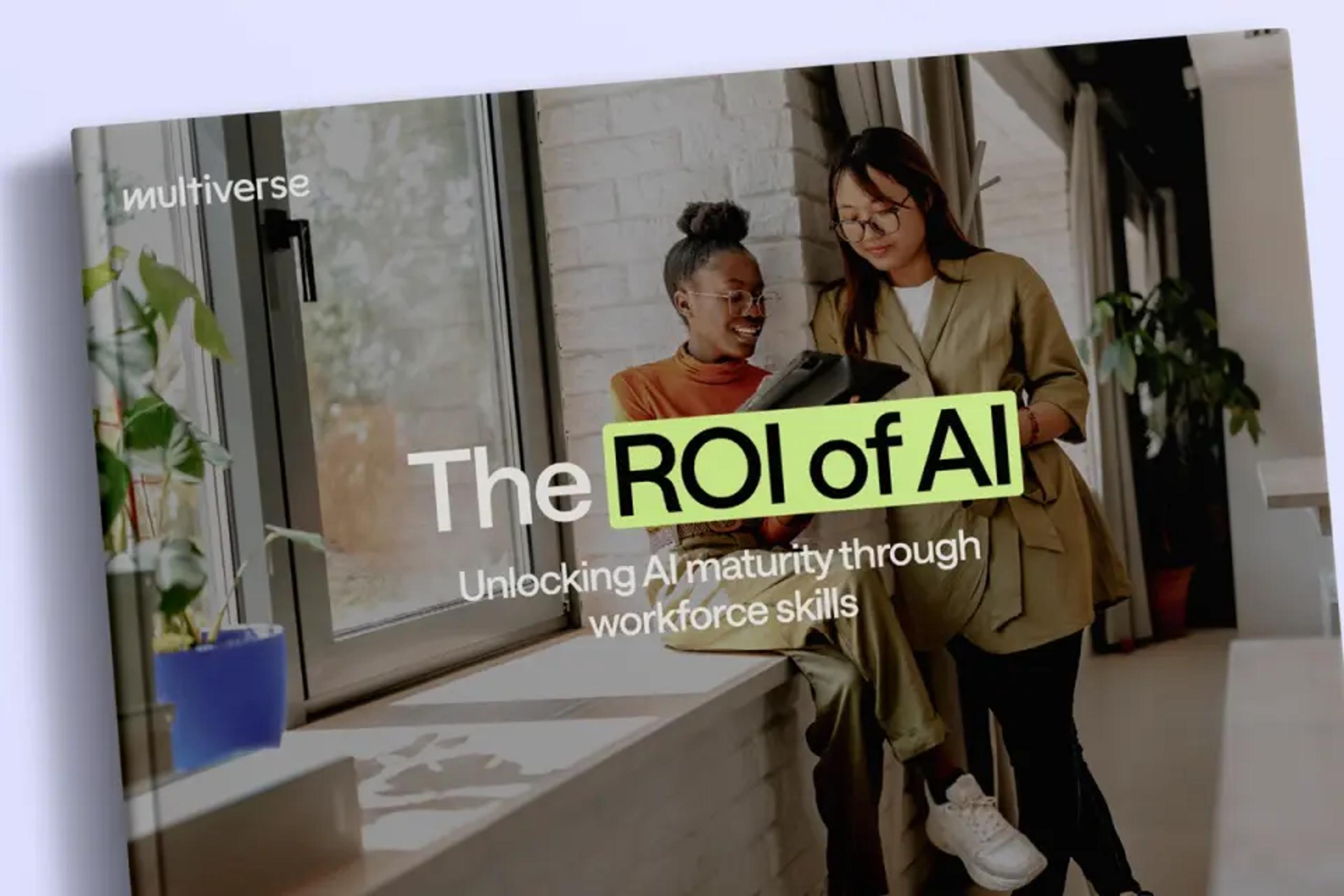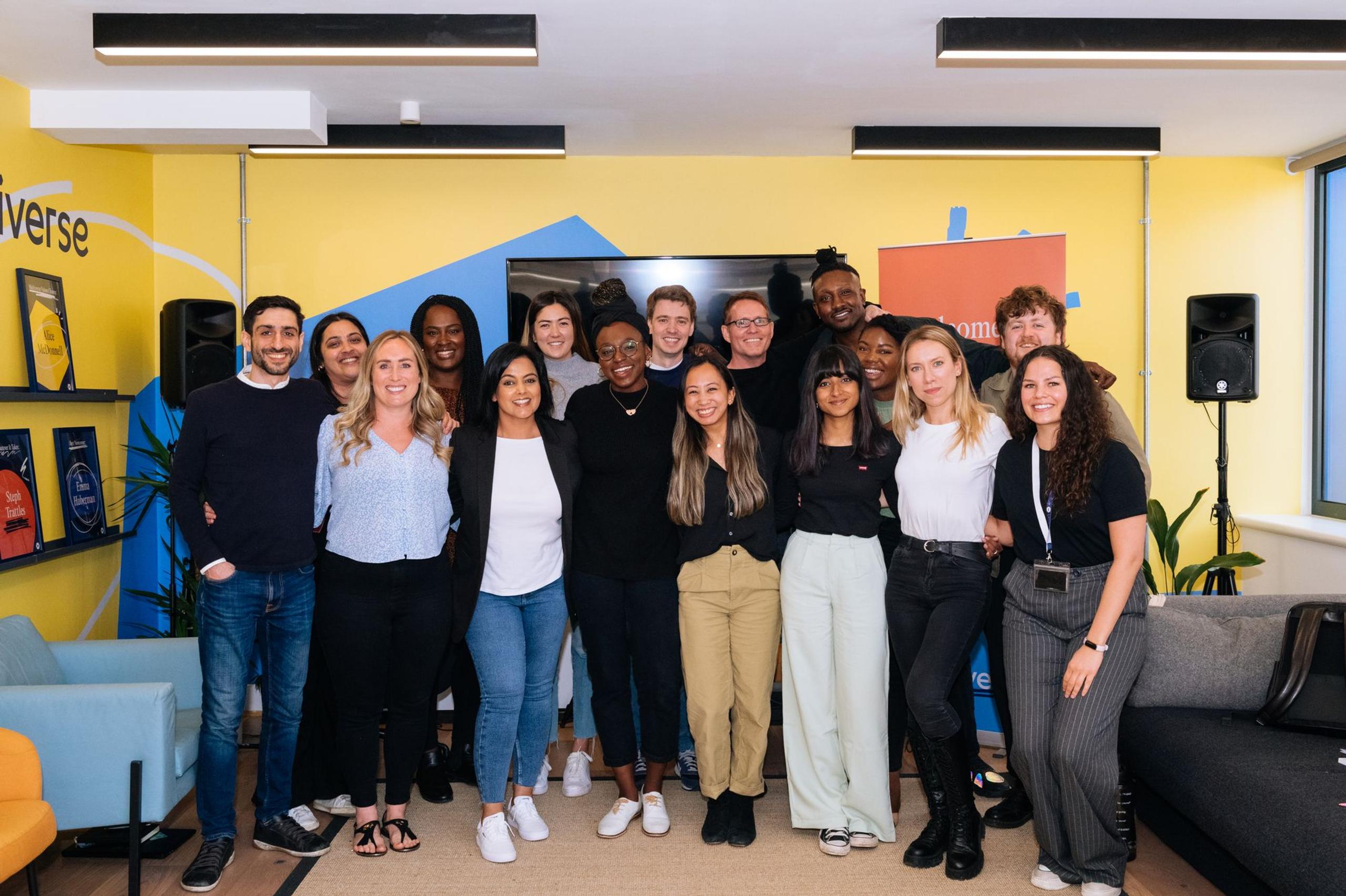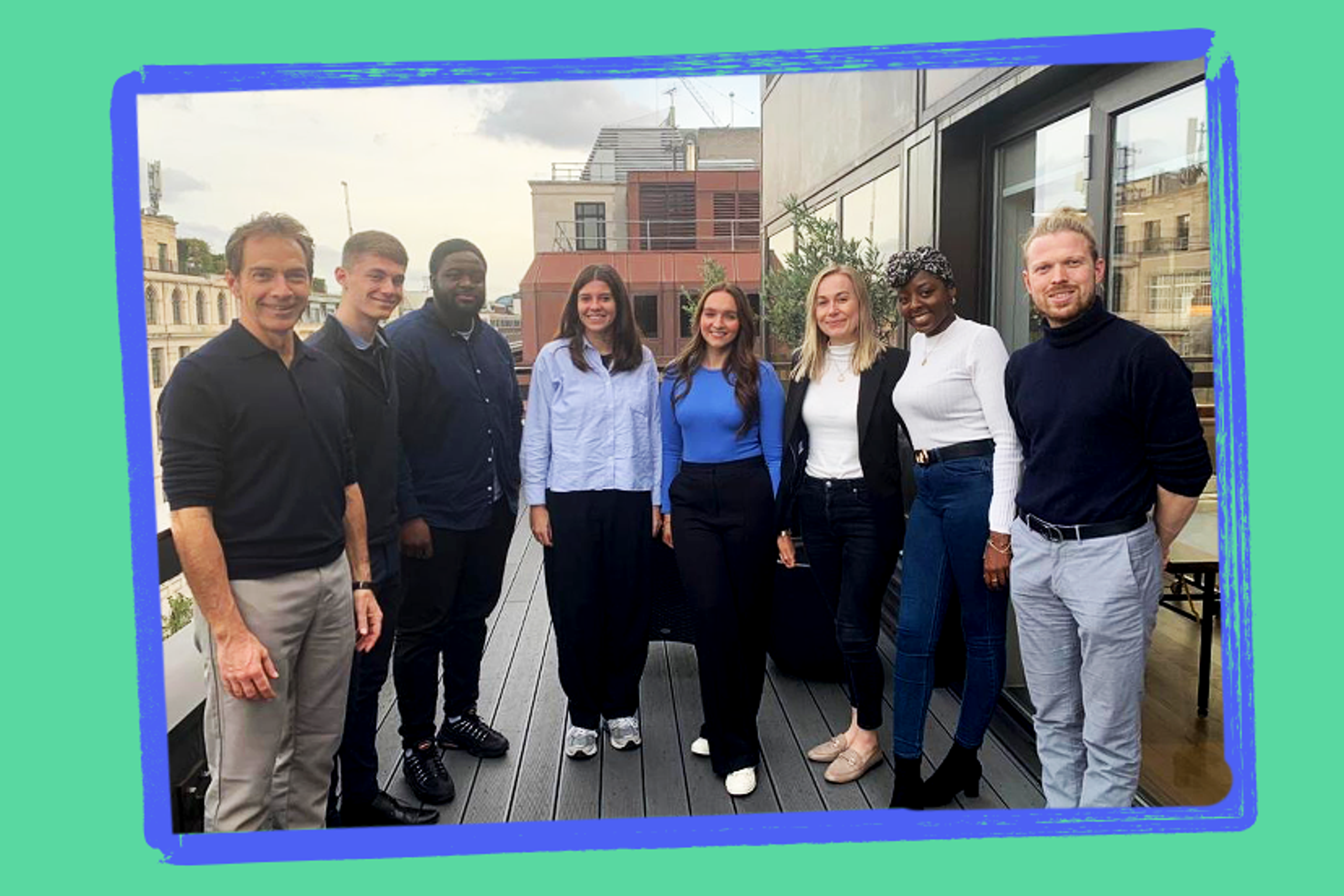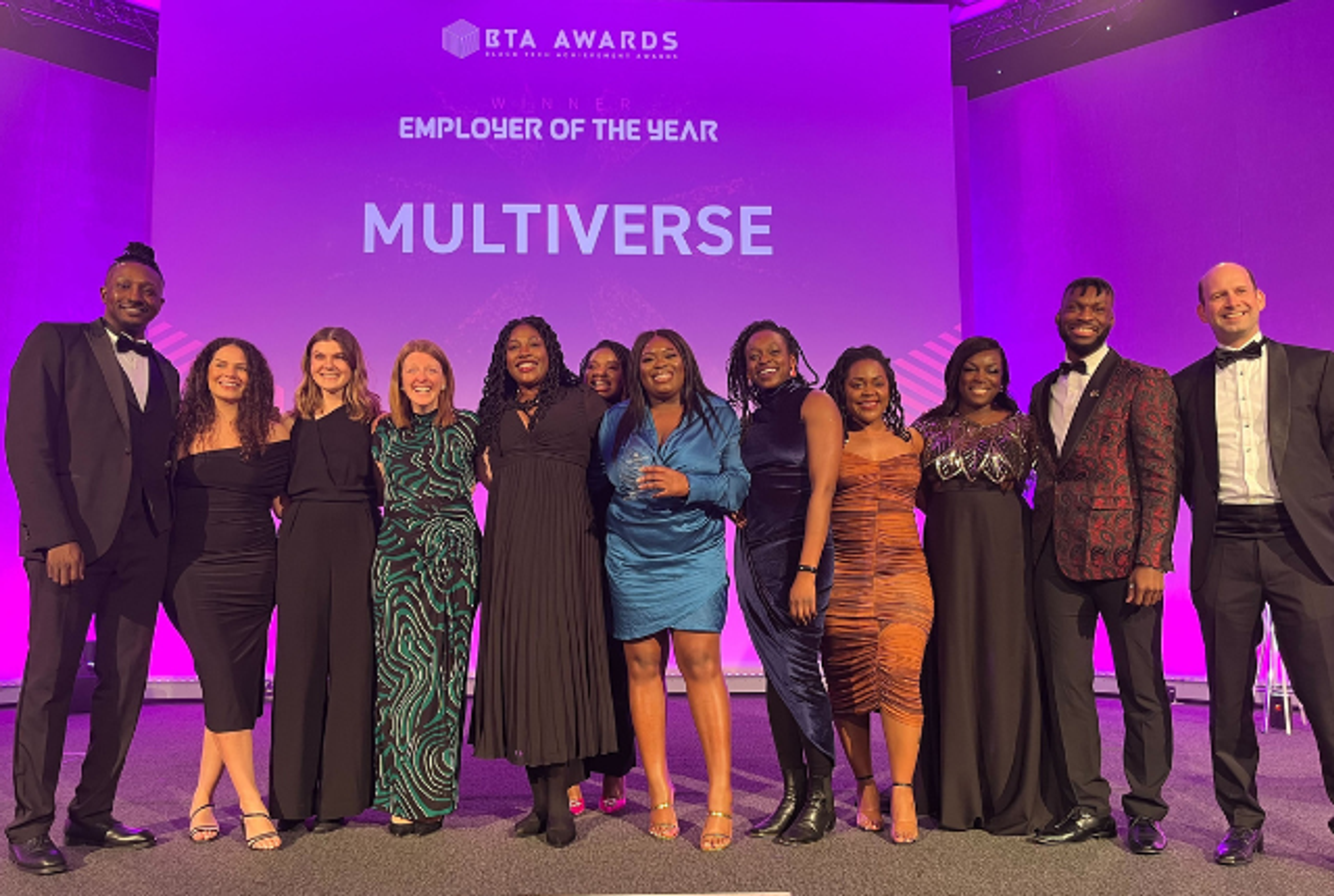We’ve reported on our gender pay gap for 2022. In the UK, our mean gender pay gap is -0.2% and our median gender pay gap is 3.7%.
This year's report offers a snapshot of the gender pay gap at Multiverse, taken on 5 April 2022, the government's date for reporting. At that time, we had 459 people in our UK team.
“Our mission is to create a diverse group of future leaders. So there is nothing more important than a really clear commitment to achieving this both within and outside of Multiverse.” - Euan Blair, Founder & CEO.
Our median pay gap is significantly lower than the average for UK tech, but as a mission-driven company, we know we've got more to do. In this post, we’ll share the details behind the data and what we’re doing to continue to improve.
The Gender Pay Gap explained
First - some technical bits. The gender pay gap is the difference in the average hourly wage of all men and women across a workforce. The gender pay gap is not the same as unequal pay which is paying men and women differently for performing the same (or similar) work, and is illegal.
Gender Identity at Multiverse
Before we share the data, we want to acknowledge that some of our team members do not identify as gender binary. At Multiverse, we welcome people of all gender identities and expressions. HMRC specifies that this analysis should only include men and women, so for the purpose of this report, we have aligned with HMRC guidelines(opens new window) and the data presented only reflects those who identify as a man or woman.
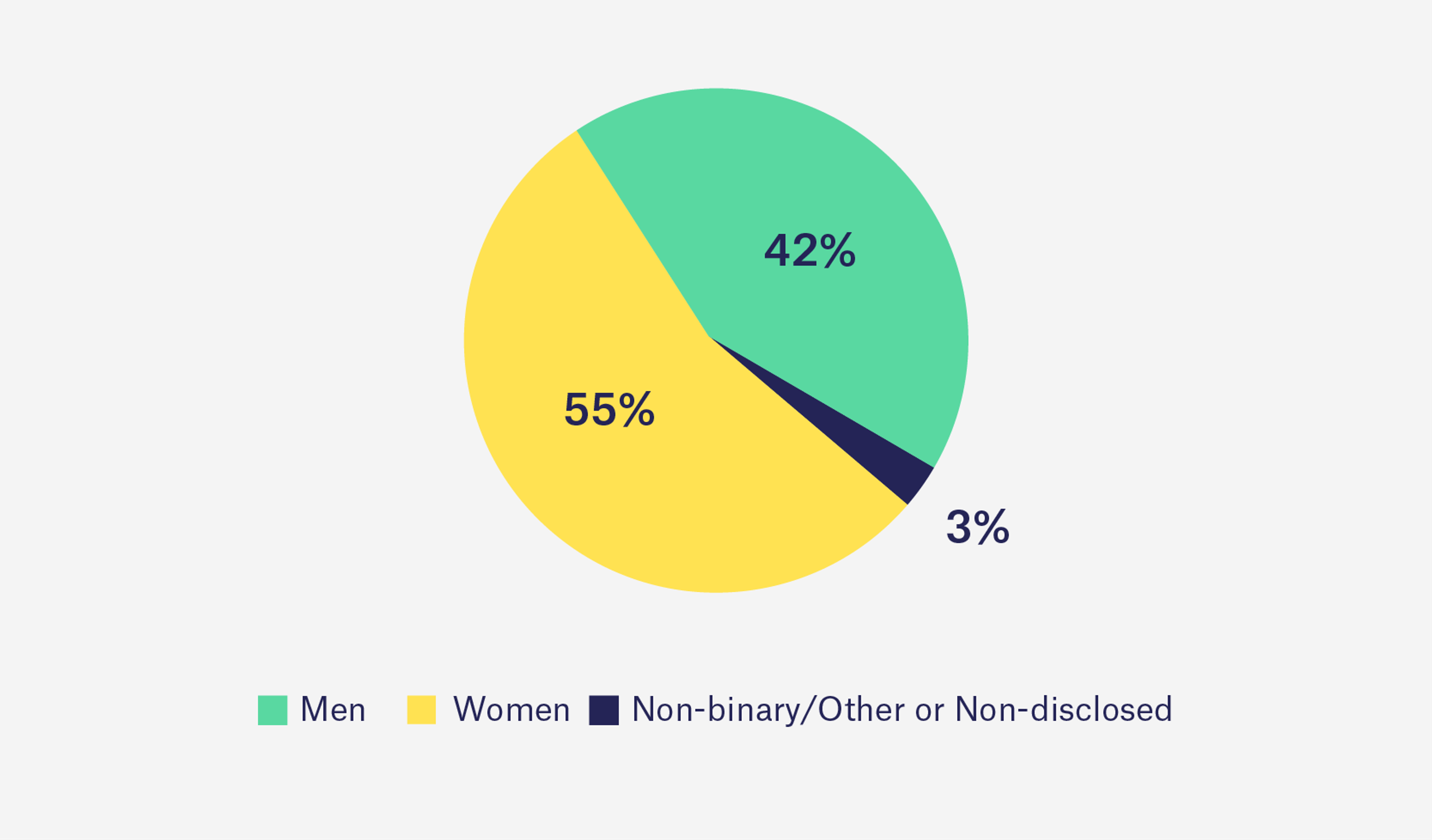
Gender Identity in the Multiverse UK team
Sharing our data
Multiverse’s mean pay gap is -0.2%. The mean is the average pay of women and men. On average, the pay of a woman at Multiverse is 0.2% higher than the pay of a man.
Multiverse’s median pay gap is 3.7%. The median compares the midpoints in the ranges of women's and men’s pay. At Multiverse, the median woman has pay 3.7% lower than that of the median man. The reason behind the median pay gap is that women are under-represented in our two highest-paid teams, Sales and Product & Tech. Conversely, men are under-represented in some of our lower-paid teams.

Gender Pay Gap in the Multiverse UK Team
Improving the representation of women has been a long-term challenge in both the sales(opens new window) and technology sectors. According to the government-funded growth network Tech Nation, just 26% of those in the UK tech workforce are women(opens new window). At Multiverse, 31% of our Product & Tech team are women, which we are proud of, but are committed to continuously improving. We have identified that our core challenge in hiring more women into our Product & Tech team is at the top of the recruitment funnel. As an example, of those who answered our candidate diversity survey in 2022, 75% of our Engineering applicants identified as a man. To address this, we’re building a sourcing and recruitment marketing strategy to attract a diverse group of candidates and we’re investing in early talent through our in-house Software Engineering Apprenticeship scheme. We know that supporting more women to enter technical roles is just one part of the journey and we’re also working to develop our internal talent into the next tech leaders. This includes our Multiverse Leadership Accelerator and the introduction of more in-depth personal development plans across the team.
To understand this data better, we can look at how women’s and men’s pay is distributed. To calculate this, we have split all of our team members into pay quartiles and worked out the proportion of men and women in each quartile. As you can see, representation for women is consistently higher than for men in each quartile, although the representation of men begins to improve in the upper quartiles.
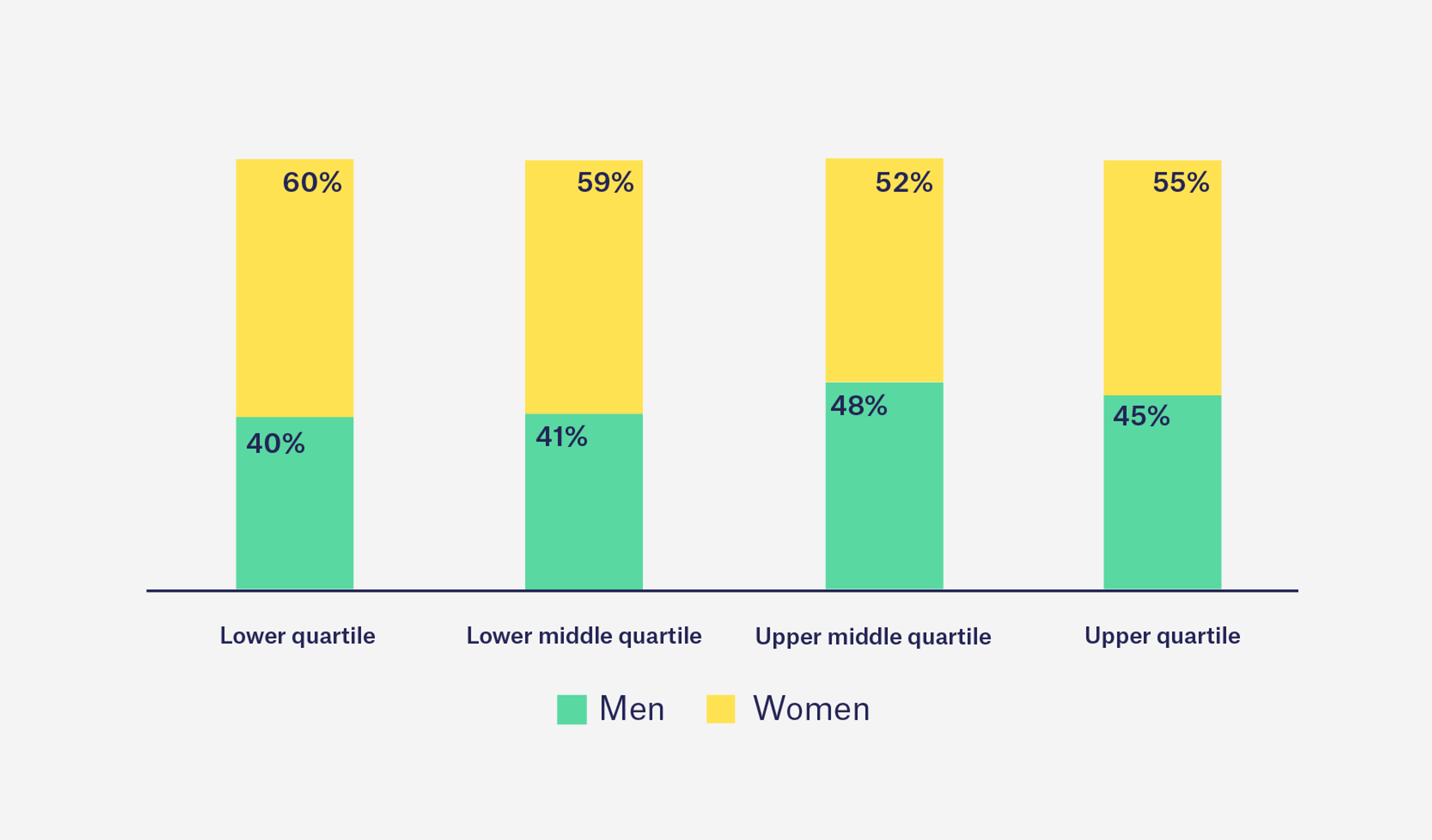
Gender breakdown by pay quartile in the UK Team
Our biggest area for improvement is our gender bonus gap. At the time of reporting, just over half of Multiverse employees received a bonus: 54% of men and 57% of women.
Multiverse’s mean gender bonus gap is 31%, and the median gender bonus gap is 18%. The large difference between the mean and median reflects the irregular distribution of bonuses, including some outliers.

Gender Bonus Gap in the Multiverse UK Team
The reason behind our gender bonus gap is because Multiverse’s highest bonus receivers are in our Sales team, and at the very extremes of the scale, women are underrepresented. Additionally, within Sales at Multiverse, employees choose whether to progress their careers as individual contributors or move into management roles. Many of our top performers who are women actively choose the management pathway. However, as the bonus structure is different for a manager role compared to an individual contributor, this has had an accelerating impact on our gender bonus gap.
It is also worth noting that in 2022 we implemented our first-ever consistent bonus scheme, and now all employees in permanent roles are eligible for a bonus. This was implemented to ensure that fairness and consistency were paramount in our pay philosophy. We are looking forward to seeing how this influences our gender bonus gap in 2023.
Our US team data
As a global organisation, we believe it’s important to voluntarily share the gender pay gap for our US team, even though this is not a government requirement. On the snapshot reporting date of 5 April 2022, we had 64 employees in the US.
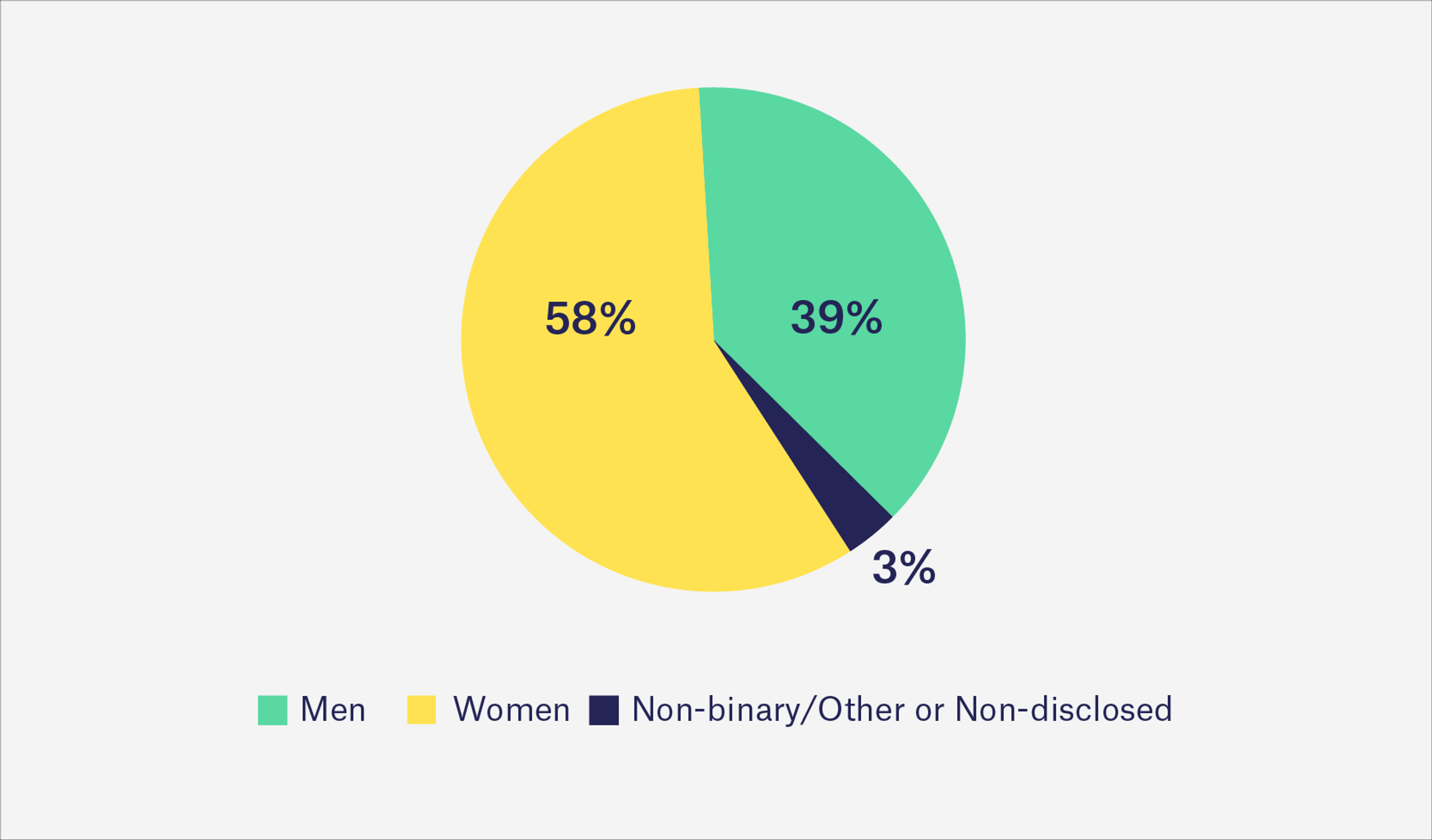
Gender identity in the Multiverse US team
In the US, Multiverse’s mean gender pay gap is -16.2% and our median gender pay gap is -2.2%. The reason for this gender pay gap is that the highest-paid departments and levels have a significantly higher representation of women than men - we do not have an Engineering team in the US and our Sales team is comparatively small. It’s important to note that this data is more sensitive to outliers due to a smaller sample size.

Gender Pay Gap in the Multiverse US team
Our approach to gender equality
While this is the first time we’ve published our gender pay gap, we’ve been committed to creating an equitable and inclusive workplace since we were founded in 2016. We have a number of initiatives in place to ensure that equality is at the forefront of our People strategy, and we’ll continue to prioritize this work to improve our gender pay gap for the future.
- Investing in early talent- for job roles where there is a significant underrepresentation of women and other underrepresented groups, like Sales and Engineering, we are committed to providing an equitable route into these careers for people from a diversity of backgrounds. This is core to our mission and we will continue to invest in our Product & Tech Apprenticeships and our Sales Academy.
- Leadership development - for us, it's essential to create equitable opportunities for progression for team members from backgrounds currently underrepresented in our leadership teams. We’ve launched a 12-month Leadership Accelerator programme that offers mentorship, sponsorship and coaching to support Multiverse employees who hit specific demographic criteria, on their leadership journey. After the success of our first cohort, we’re now looking forward to the launch of our second cohort!
- Pay philosophy - our pay philosophy at Multiverse is based on the principles of; equitable, competitive, holistic, motivational and scalable. This philosophy enables us to make fair, unbiased and evidence-based decisions on pay. In line with this, we’ve introduced pay bands for all roles and a defined bonus structure. But this is only the start - we are deeply committed to the impact that transparent pay practices have on creating equitable outcomes and will share more along our journey.
- Inclusive hiring practices - our global Diversity, Equity & Inclusion team offer regular training on inclusive recruitment for our hiring teams, in addition to identifying gaps and opportunities in our hiring practices and outcomes. We also actively partner with a number of organisations for underrepresented communities, including BYP Network, Techqueria and Flexa, to improve the diversity of our talent pool.
- Equitable performance reviews - We believe that ensuring we have our eyes open to potential bias in the system is critical to creating equitable outcomes. We have therefore introduced a structured performance appraisal process, with clear expectations and calibration across teams. By applying rigour to this process, we are better able to make more accurate decisions for all employees regarding their pay, performance and progression.
Read more about our Diversity, Equity & Inclusion strategy and goals here.
